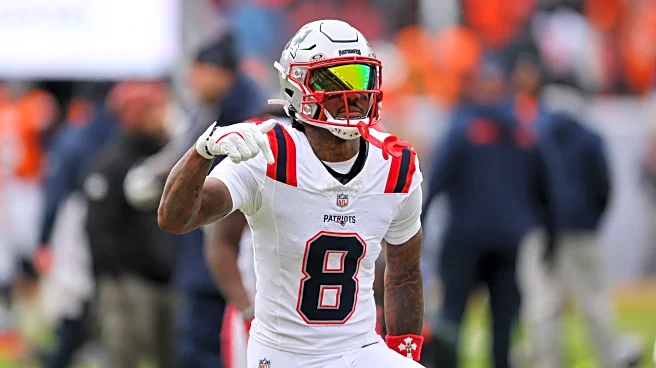What is the story about?
What's Happening?
The landscape of college football is on the brink of significant transformation as schools adapt to a new era where athletes are compensated and the focus shifts from traditional bowl games to playoffs. This change is driven by lucrative media deals, such as ESPN's $7.8 billion contract for the College Football Playoff, which is set to be renegotiated in the coming years. The potential introduction of private equity, the formation of an NFL-style super league, and increased financial disparities between schools are among the possible outcomes. These developments are part of a broader trend where college sports are expected to look vastly different in the next decade, with increased payouts for players and a reimagining of media rights deals.
Why It's Important?
The changes in college football have significant implications for the sport's financial ecosystem. The renegotiation of media rights deals could lead to a substantial influx of cash, benefiting conferences like the SEC and Big Ten. This financial boost is crucial for schools as they navigate the complexities of revenue sharing with athletes, as mandated by a $2.8 billion NCAA antitrust settlement. The potential involvement of private equity could provide additional funding solutions for athletic departments. However, these shifts may also exacerbate the divide between wealthier and less affluent schools, impacting competitive balance and the traditional structure of college sports.
What's Next?
As the media rights deals approach expiration, stakeholders in college football will likely engage in strategic negotiations to maximize their financial returns. The possibility of a super league and further conference realignment could reshape the competitive landscape. Schools and conferences will need to balance the demands of revenue generation with maintaining the integrity and accessibility of college sports. The ongoing evolution of college athletics will require careful consideration of legal and ethical implications, particularly concerning athlete compensation and the role of private equity in collegiate sports.














